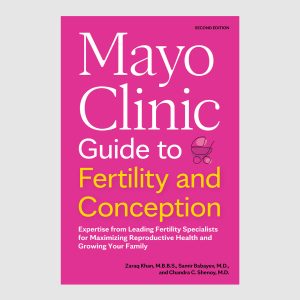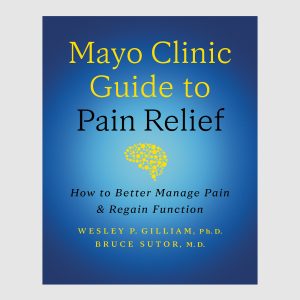
Many people struggle with body positivity, and it can be a difficult topic to navigate. Highlighted below are several common questions regarding body positivity excerpted from the Mayo Clinic Diet: Weight-Loss Medications Edition, by Donald D. Hensrud, M.D., M.P.H., Andres J. Acosta, M.D., Ph.D., and Tara M. Schmidt, M.Ed., RDN. With the guidance of Mayo Clinic expert Karen Grothe, Ph.D., L.P., you can learn to talk about weight loss and body image in a positive manner by focusing on health rather than on numbers or sizes.
On body positivity and celebrating the self: Questions and answers with Karen Grothe, Ph.D., L.P., Psychiatry
Q: It’s commonly accepted that losing excess weight can improve health, but what are your thoughts on cultural shifts such as “body positivity” and “health at every size”? Is it OK to be any size?
A: It is absolutely OK to be any size. The goal is to be as healthy at any size as possible, and that looks different for each person.
I think it’s great that the culture is moving toward more body positivity and embracing various body shapes and sizes rather than focusing on an unrealistic ideal. I like to encourage patients to think about weight-loss efforts in terms of improving health and fitness, so they can have the best quality and quantity of life they are looking for and be able to live the life they truly want.
Q: Is it possible to celebrate weight loss even if a specific weight isn’t achieved?
A: It’s a great idea to be positive and grateful for the things you like about your body and what it can do, regardless of the number you see on the scale. Instead of criticizing yourself, focus on the positive results of weight management, such as feeling more energy, sleeping better, being in a better mood, setting a good example for others and feeling a sense of accomplishment. Think about feeling good, rather than looking good or focusing on a particular number on the scale.
Q: Society places a lot of value on body image. How can I respond to people who offer unsolicited comments or advice related to my weight?
A: Learning to feel comfortable communicating your needs and boundaries with others is an important, yet often overlooked, part of weight management. One of the challenges with weight loss or weight gain is that others may notice changes and make comments. Some people offer suggestions or ask questions that make you feel uncomfortable.
You’re not alone in that experience and it’s OK to keep some of your health journey private if that feels the most comfortable to you. You can respond with truth, but not detail. Simply let others know you are “making lots of changes” or “working with a particular program” and then switch topics. Sometimes,
you may need to set firm boundaries about when and with whom you discuss lifestyle changes.
You’ve probably been a great support person for others in your life. Now it’s your turn to receive support. It’s perfectly OK to let others know what is helpful to you on your journey and what is not.
Q: The word diet has received its fair share of criticism, yet Mayo Clinic has its own diet. What does the word really mean and must it have a negative association?
A: I prefer to use the word diet in terms of what you eat every day, particularly from a vitamin and nutrient standpoint.
What is good fuel for your body? We try to help people shift from a dieting mentality — which tends to center on an all-or-nothing, unsustainable way of eating — to lifestyle change. This means making multiple small changes that shape behavior over time. You want to develop new autopilot behaviors that naturally tend toward smaller portions, healthier food choices and more physical movement.
I intentionally say “tend toward” because your focus should not be perfection but on making decisions that are good for your health in the long run. It’s not an easy thing to do in today’s environment, but it can be done. And we as a society can start to change that environment not just for ourselves, but for those around us too!
An excerpt from the Mayo Clinic Diet: Weight-Loss Medications Edition, by Donald D. Hensrud, M.D., M.P.H., Andres J. Acosta, M.D., Ph.D., and Tara M. Schmidt, M.Ed., RDN.

Relevant reading
The Nocebo Effect
We are just discovering the power behind The Nocebo Effect, as explored in the groundbreaking work of a dozen top level researchers. Most importantly, researchers have investigated strategies that can be adopted by both clinicians and patients to reduce the nocebo effect.



















